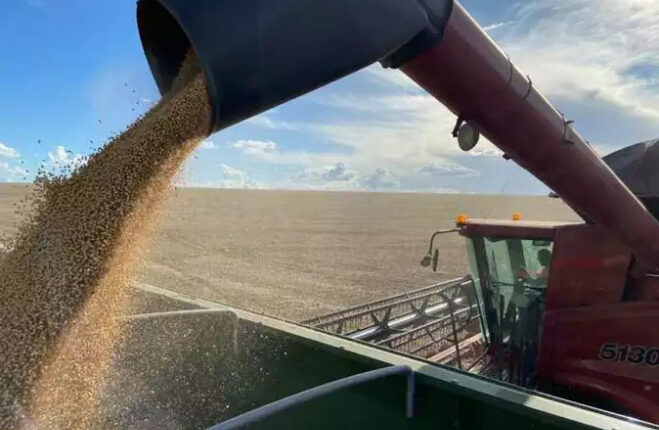
Agribusiness should increase production by 27% in the next 10 years.
Ministry of Agriculture foresees an increase in productivity and a 27% growth in grain production in the next 10 years.
Responsible for 21% of the Gross Domestic Product (GDP) and for 20% of the country’s jobs, the agricultural sector continues to grow rapidly. According to an estimate by the Ministry of Agriculture, Livestock and Supply (Mapa), in the next 10 years, grain production is expected to grow 27%, from the current 250.9 million to 318.3 million tons in the 2029/2030 harvest . In other words, growth of 2.4% per year.
The forecasts are from the Agribusiness study, Brazil 2019/20 to 2029/30, carried out by the Secretariat of Agricultural Policy of the Map, by the Brazilian Agricultural Research Corporation (Embrapa) and by the Statistics Department of the University of Brasília (UnB). The work also foresees an increase in the planted area, from 65.5 million hectares, currently, to 76.4 million hectares.
“The projections point to a reduction in the areas of rice and beans and an increase in the area planted with soybeans and corn”, informs the material. Soy, for example, would go from 23.5 million hectares planted in 2009/2010 to 46.6 million hectares in 2029/2030, almost double.
According to the work, the increase in productivity should boost the sector. “Projections of the total factor productivity indexes (PTF) were made, and it was found that the average growth rate for the next decade should be slightly below that which Brazil has grown, 2.93%, while the average for the period 1975-2017 was 3.08% per year ”, informs the text.
Professor at the Economic Sciences course at IESB, Luís Guilherme Alho highlights the importance of agribusiness for the country’s economy. “Brazil is one of the countries that has a laboratory for learning about innovations in this sector. Many companies are testing new technologies in Brazil, given the availability of grain and meat production in general, ”he explained. In addition, there is an incentive to international trade. “Brazil stands out and consolidates significant partnerships on account of this sector,” he said.
The professor highlights the need for other sectors to also bet on innovation. “It is very important that Brazil grows not only in agriculture, but in several other sectors, based on increased productivity. Since the beginning of the 20th century, the country recorded growth in the economy due to several factors, but productivity was the least intense ”, he evaluated.
Alho points out, however, that, although it emphasizes the need to invest in productivity, the study does not define where this investment will come from. “We know that in the next decade we will hardly have public investment,” he said. Therefore, he noted, resources should come from the private sector and, for that, policies that seek to attract these investments must be considered.
Source: www.correiobraziliense.com.br